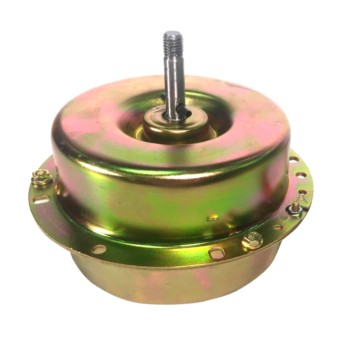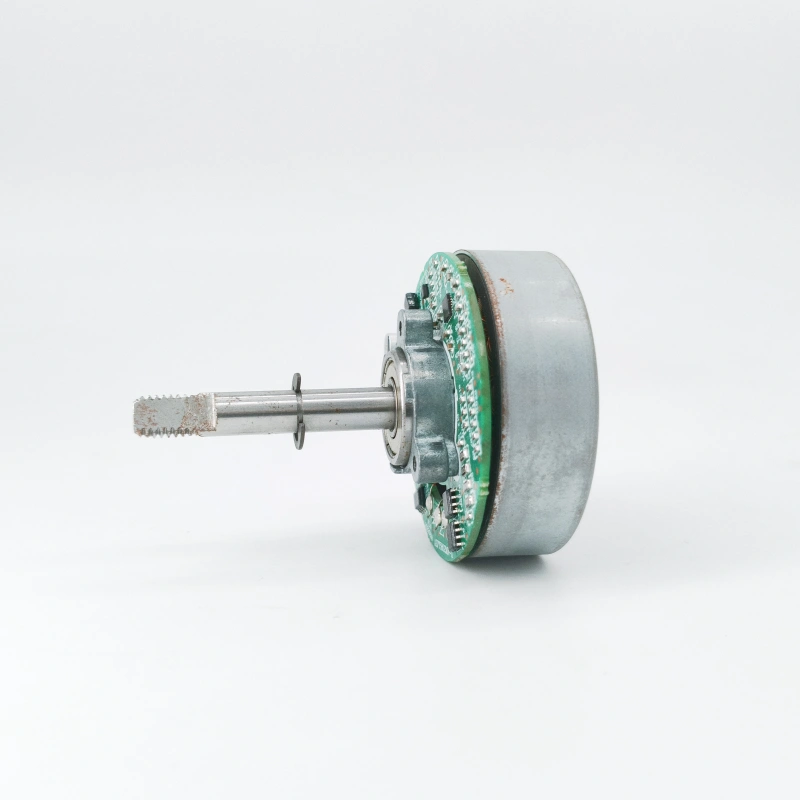AC motors stand as one of the most transformative inventions in the history of engineering, underpinning modern industrialization, technological progress, and daily life. Their importance stems from a unique combination of efficiency, versatility, and compatibility with the global electrical infrastructure, making them indispensable across countless sectors.
First and foremost, compatibility with the global power grid solidifies their significance. The vast majority of electricity generated and distributed worldwide is alternating current (AC), a system championed by Nikola Tesla in the late 19th century for its ability to transmit power over long distances with minimal loss. AC motors align seamlessly with this infrastructure, eliminating the need for complex, energy-wasting conversions to direct current (DC) that would be required for DC motors in most large-scale applications. This synergy ensures that AC motors can be integrated into everything from small household appliances to massive industrial machinery with ease and efficiency.
Efficiency is another cornerstone of their importance. AC motors, particularly induction motors, are renowned for their high energy efficiency, especially in variable-speed applications. Unlike some mechanical systems that rely on gears or belts to adjust speed (which introduce friction and energy loss), AC motors can be controlled using variable frequency drives (VFDs) to modulate their output precisely. This not only reduces energy consumption but also extends the lifespan of equipment by minimizing wear and tear. In industrial settings, where motors can account for up to 70% of electricity usage, this efficiency translates to substantial cost savings and reduced environmental impact—a critical factor in the global push for sustainability.
Versatility further cements their role in modern society. AC motors come in a wide range of sizes and configurations, from tiny fractional-horsepower motors in fans and blenders to large, multi-megawatt motors in pumps, compressors, and electric trains. Their adaptability allows them to perform diverse tasks: driving conveyor belts in manufacturing, powering HVAC systems in buildings, propelling electric vehicles, and even enabling renewable energy technologies like wind turbines (where AC generators, closely related to AC motors, convert wind energy to electricity). This versatility means AC motors are not limited to a single industry but are instead the workhorses of sectors as varied as agriculture, healthcare, transportation, and construction.
Reliability and low maintenance are additional traits that make AC motors indispensable. Induction motors, the most common type, have no brushes or commutators—components that wear out in DC motors and require frequent replacement. This simplicity reduces downtime and maintenance costs, making them ideal for applications where continuous operation is critical, such as in water treatment plants, manufacturing lines, or emergency systems. Their robust design also allows them to operate in harsh environments, including high temperatures, dust, and moisture, further expanding their utility.
Finally, AC motors have been drivers of innovation and economic growth. By enabling the mechanization of labor-intensive tasks, they revolutionized manufacturing during the Industrial Revolution and continue to power automation in the digital age. From assembly lines that mass-produce goods to robotics that handle precision tasks, AC motors are the backbone of modern productivity. Their role in electrification also supports the transition to renewable energy: electric vehicles, which rely on AC motors (via inverters that convert DC battery power to AC), and grid-scale energy storage systems both depend on their efficiency to make sustainable technologies viable.
In essence, AC motors are more than just machines—they are the invisible force behind the modern world. Their ability to efficiently convert electrical energy into mechanical motion, combined with their compatibility, versatility, and reliability, makes them essential to economic development, technological advancement, and the everyday comfort and safety of billions. Without AC motors, the infrastructure, industries, and conveniences we take for granted would simply not exist in their current form.




